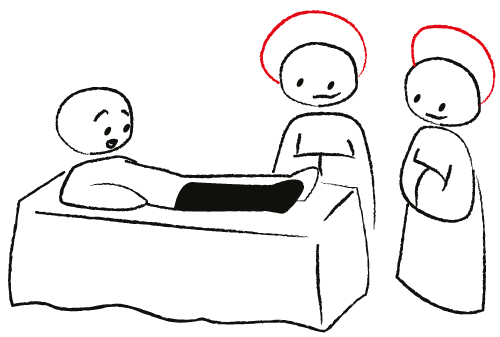This is my first work after moving in Switzerland, and I am proud of it as it helped structuring a referendum, approved by the Swiss, that has effectively changed how organ donation works here. Being a report for the federal office of public health, it’s in German.
Background:
In Switzerland, the political pressure for a change of the will expression model has increased. For this reason, the current international study situation on the topics of the “will expression model”, “donor register” and the role of relatives in the decision for or against organ donation is to be reviewed. In particular, it will be examined to what extent the conclusions of the FOPH report “Examination of measures to increase the number of available organs for transplantation purposes in Switzerland” published in 2013 are still valid.
Research question:
The following questions should be answered through literature research:
1) Can recent empirical evidence be found on the question of the extent to which the objection solution or its introduction has an impact on organ donation rates or other relevant aspects relating to transplantation?
2) Is there recent empirical evidence on the impact of a donor registry on organ donation rates or other relevant aspects of transplantation?
3) Can data be found for a correlation between the type of will expression model and the refusal/consent rate of relatives in a specific donation case?
Methods:
A literature search was conducted in the PubMed, Scopus and Web of Science Core Collection databases using appropriate search keywords over the period 2007 to 2017. The identified publications were evaluated quantitatively and qualitatively. No expert interviews or surveys were conducted; grey literature was not evaluated.
Results:
The literature search identified 424 potentially relevant papers, of which over 90% were available in full text. Over 80% of these (314) were evaluated quantitatively. Of the latter, just under a quarter (71) were evaluated qualitatively. The quantitative analysis showed that the topic of “relatives’ decision” has become a central theme in the literature in recent years and that opt-out models are discussed significantly more often than opt-in models. The qualitative analysis revealed that clear evidence for a direct causal effect of the will expression model on the donation rate as well as a reliable estimate of the extent of the effect is still lacking. However, the indications that a contradiction model could positively influence the donation rate have become stronger. There is still a lack of reliable evidence on a direct, causal effect of registries on the donation rate. Although there are a large number of studies on individual factors influencing the process of relatives’ will formation, there is currently no conclusive study on whether and how the will formation model directly influences the relatives’ consent rate. Cultural and socio-economic factors also form important boundary conditions for an organ donation system with high donation rates.
Conclusions:
The effects of an opt-out model on donation rates still cannot be conclusively assessed. Thus, the core statements of the 2013 report remain valid. For a conclusive evaluation of the effect of a soft-opt-out model on the donation rate, the following findings are currently missing: Firstly, differences in the design of a soft-opt-out solution and the associated role of relatives would have to be elaborated to enable international comparability. Secondly, it would have to be investigated to what extent relatives in their role as “witnesses” are influenced by their own preferences in the decision-making process. Thirdly, it would have to be investigated whether an opt-out model actually leads to the relatives evaluating a lack of expression of will on the part of the deceased person as an indication of consent.
The report is here:

